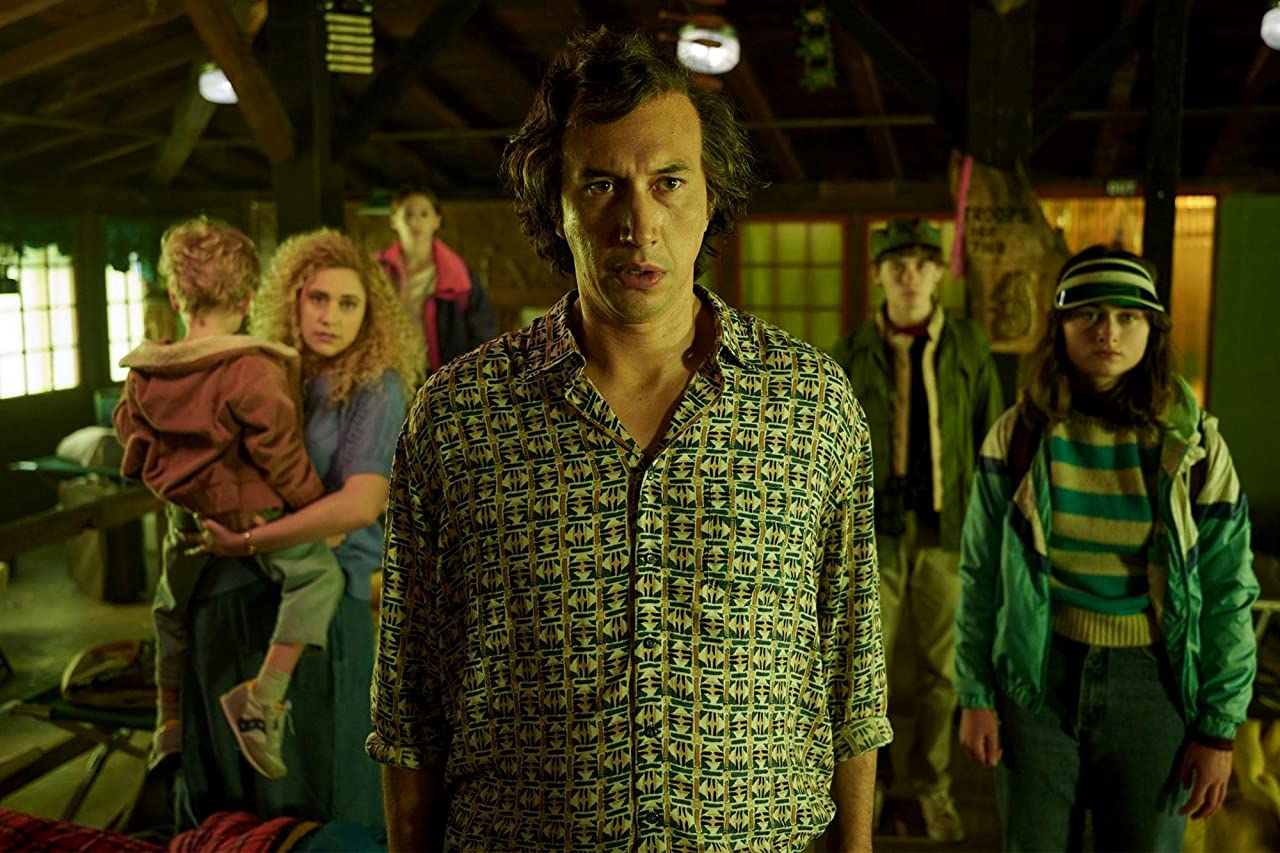White Noise: A Movie Review
Flirting with big budget cinema, Noah Baumbach delivers an arresting if disjointed riff on the disaster movie.

White Noise is a quirky, existential comedy that flirts with the genre conventions of a disaster movie. An adaptation of Don DeLillo’s 1985 novel of the same name, it stars Greta Gerwig and Adam Driver, and is the most ambitious, big budget movie of Noah Baumbach’s to date, after the critical success of Marriage Story.
The plot flirts with high concept cinema enough that I wonder if, with better marketing and, who knows, a tweak to its release timing, it could have caught fire and become a massive box office success. It speaks to a post-pandemic audience, at just about the right time, while entertaining.
Everything is infused with comic pepper and absurd dialogue, lightening and obscuring a story built on the foundations of morbid obsession. Life and death are in constant contrast. It has a post-modern kind of movie magic.
The script crackles, spitting out maybe a thousand funny, repeatable lines. How many lines are there in a 136 minute long movie? It feels like one thousand. Maybe it’s one hundred. Or fifty. It’s a lot.
They come so thick and fast you have to run with it, with no time to reflect and laugh at most — which creates a breakneck verbal speed that is part of the dialogue’s fun. It is densely compressed, with a dry wit. Quick-fire intellectual banter and hectic social scenarios with an anxious undercurrent and a focus on relationship dynamics.
This movie comes from the school of Charlie Kaufman, the Coen brothers, Wes Anderson, the Safdie brothers, Alexander Payne. A pinch of Paul Thomas Anderson? Baumbach movies are their own thing, but if you like most of the above, you are likely to appreciate it.
Adam Driver plays Jack, one of the foremost figures in Hitler Studies. He teaches Advanced Nazism and is hurriedly trying to learn enough German to deliver a lecture in Germany. Gerwig plays his partner Babette, whose point of existence, Jack explains to her, is to “reveal and confide.” Babette is stumbling into an existential crisis, a storm brewing in her inner world, as an Airborne Toxic Event interrupts her life. Along with Jack and their four kids, she is forced to evacuate their family home.
Gerwig is excellent in a part that sees her acting as an anxious observer and unwilling participant in calamity, already haunted by unspoken psychological complexes that the Airborne Toxic Event piles chaos on top of. Babette is living a boring life she hopes will never end. She is attempting to manage the unmanageable. Gerwig lends the character an inimitable soulful chaos.
Driver plays a self-obsessed professor with eccentric, pretentious, middle-aged pizzazz, appearing notably different than usual (tubby, academic). Jack is an interesting, contradictory character. Outside the lecture hall, where he is intellectually intrepid and boldly dramatic, he uses his intellectual powers mostly to rationalise and explain dangers away.
The first half takes the form of a family caper/adventure in response to a local environmental crisis. It feels like an eccentric action/comedy with ecological themes. Occupied with the experience of living through a society-halting crisis. In tone and style it is akin to Alexander Payne’s Downsizing, though with much stronger writing. Baumbach is, for my money, the best screenwriter working in Hollywood, whether it always translates into box office success or not.
The physical crisis of the Airborne Toxic Event mutates into a spiritual and personal one, where relationships are put under strain. The movie slows down, zooming into the relationship of Jack and Babette and exploring Babette’s inner world and secrets. We basically forget about the event that set everything in motion.
The change of style in the second half lost me slightly, going to places that felt disjointed from what came before, and losing the pace, energy, and motion of the first half. Narratively it serves an important purpose, to show this transformation of crisis, but it also feels uneven as a movie-watching experience. It gets you in the mood for one film, then shifts into feeling more like a surreal and existential mutation of Marriage Story.
The way this movie opens and closes deserves special mention.
It opens with a scene irrelevant to the story, where a lecturer and colleague of Jack’s — specialising in Elvis in much the same way Jack specialises in Hitler — discusses the wonders of Hollywood car crash scenes as strangely lighthearted moments in cinema. It is an intriguing scene, that lights up your brain quickly, while serving as a “key” to the subtext of the narrative. A few movies have done something similar recently — Jordan Peele’s Nope, for example — and I really enjoy the device. It’s like leaving a key to a puzzle at the start of the film, and adds interest. It also gives creative license to open with something that leaves a strong impression.
The scene of the closing credits, a musical piece in the style of a music video, which riffs on another concept from the script, is also amazingly well done. It is a good way to close this kind of story with strong energy, and leave the audience with a smile. You could think of it as the opposite of a sudden cut to black.
Baumbach movies are not for everyone, but they can sometimes fly under the radar even for those who enjoy his work, and be easy to miss at the theatre. They don’t tend to break box office records, but they are invariably great in ways, and White Noise is no different. It pays to make the effort to catch his work on the big screen. They are always special.
James Lanternman writes movie reviews, essays, and moonlit thoughts. You can reach him at [email protected].
Previously… Clerks III: A Movie Review
